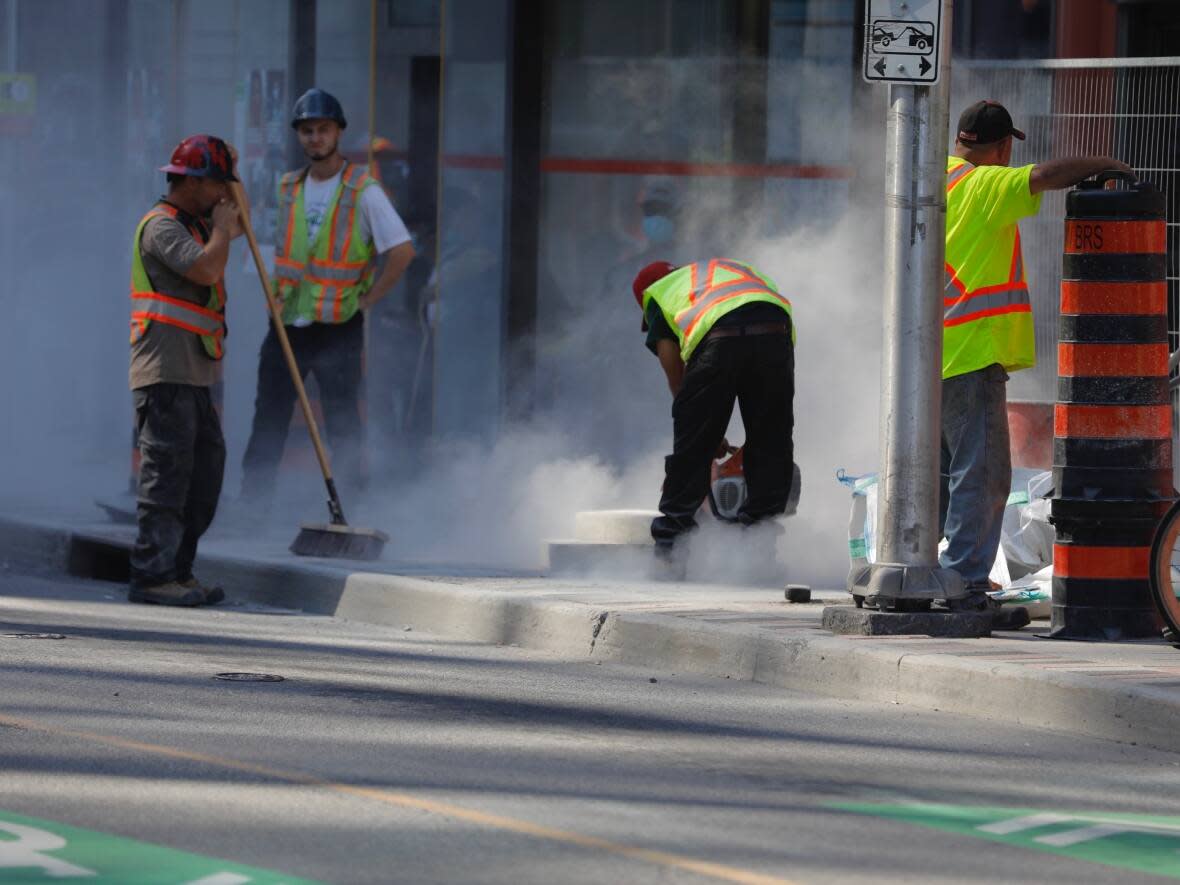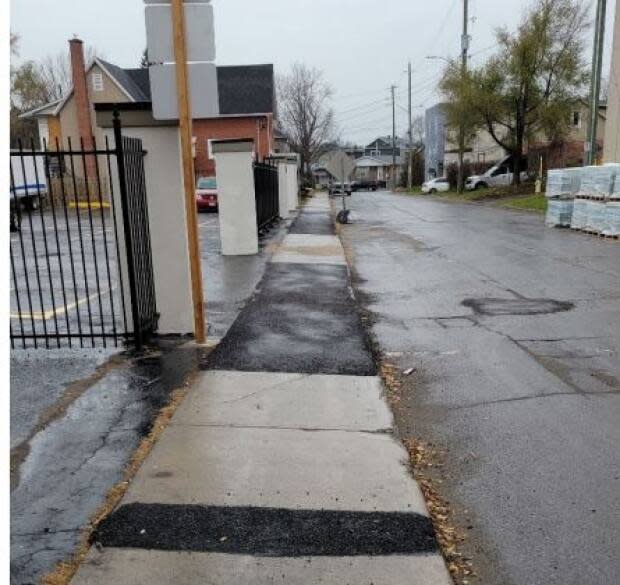Contractor shortage slowing sidewalk repairs, city says

The City of Ottawa is having trouble finding contractors to carry out long-lasting sidewalk repairs, leaving city crews to patch gaps and cracks with asphalt.
"We have had challenges in the last few years with regards to obtaining contracted services to do some of these concrete repairs," Quentin Levesque, the city's director of roads and parking services, told councillors on Ottawa's transportation committee Wednesday.
"What we've been experiencing is a very hot construction market and labour market, which has posed challenges with regards to attracting these contractors and vendors to undertake this work, just given that the scale and the scope of the work is very small in comparison to a lot of the larger construction projects that we have underway within the city."
Levesque was speaking in response to an inquiry submitted by Coun. Mathieu Fleury in April.
In it, Fleury complained that "this repair approach of sidewalk asphalt patches continues to raise issues of lack of city pride and also degradation of infrastructure sidewalks across our city."
Fleury asked what needs to be done to ensure damaged sidewalk panels are replaced with concrete instead of patched with asphalt, and what steps council would need to take to enact a ban on asphalt fixes, the cheapest and easiest repair method available.

Asphalt ban not recommended
Levesque counselled against such a drastic step, noting the city is required by the province to fix Class A hazards such as cracks of two centimetres or more within 14 days, while the city's own standard for repair is seven days.
Banning the use of asphalt for temporary repairs would slow that response, Levesque warned.
However, he agreed that his department has to get a better handle on the work that's needed to permanently repair the city's vast network of sidewalks.
"Certainly we need to make some improvements in that area to get a better sense on, OK, how many of those asphalt repairs are currently out there that need to be replaced with concrete?" he told the committee.
Of the various sidewalk repair methods available, patching with asphalt is by far the cheapest and easiest, but it's also "a last resort and temporary measure to address the hazard until a full concrete panel replacement can be completed," according to the written response to Fleury's inquiry.
Department under budget
In the spring of 2021 alone, Levesque's department performed 905 such patch jobs. Fleury noted that by relying on that method, the department actually underspent on sidewalk repairs to the tune of about $1 million.
"It sounds bizarre, but in this case, to not spend the full amount budgeted shows even a bigger problem than what we're seeing on the ground right now. It's showing that there's a decay in our infrastructure that we're not upkeeping," he said.
The city's public works department has an annual budget of $3.5 million for "various concrete repairs."
In order to make sidewalk repairs more attractive to contractors, Levesque told the committee his department is now "packaging" jobs together with larger infrastructure projects. He said the city is close to tendering those contracts.
Levesque's department is also embarking on a survey of all 2,135 kilometres of sidewalk in Ottawa to compile a complete list of necessary repairs. They're expected to finish later this year, and will report to council in 2023.
"So that we can identify not only what that number [of repairs] is, but identify the appropriate budget that would be required as well as the timeline in order to proceed to do the replacement in concrete," Levesque said.


